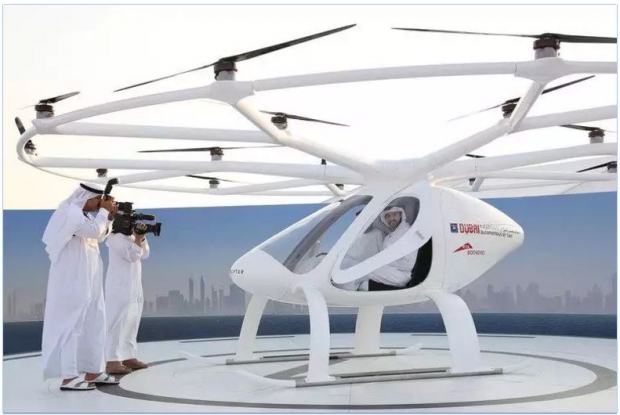The flying taxi developed by German drone firm Volocopter resembles a small, two-seater helicopter cabin topped by a wide hoop studded with 18 propellers.
It was unmanned for its maiden test run in a ceremony arranged for Dubai Crown Prince Sheikh Hamdan bin Mohammed.
Meant to fly without remote control guidance and with a maximum flight duration of 30 minutes, it comes with plenty of failsafes in case of trouble: back-up batteries, rotors and, for a worst case scenario, a couple of parachutes.
Volocopter is in a race with more than a dozen well-funded European and US firms, each with its own science fiction inspired vision for creating a new form of urban transport that is a cross between a driverless electric car and a short-haul, vertical takeoff-and-landing aircraft.
These include aerospace giant Airbus, which aims to put a self-piloting taxi in the air by 2020; Kitty Hawk, a company backed by Google co-founder Larry Page; and Uber, which is working with partners on its own flying taxi strategy.
“Implementation would see you using your smartphone, having an app, and ordering a Volocopter to the next voloport near you. The volocopter would come and autonomously pick you up and take you to your destination”, CEO Florian Reuter said.
“It already is capable of flying based on GPS tracks today, and we will implement full sense capability, also dealing with unknown obstacles on the way”, he added, saying developers aimed to initiate the taxis within five years.
In Monday’s test flight, the device hovered upward about 200 meters and whirred for about five minutes over a windswept patch of sand astride the emirate’s Gulf coast.




